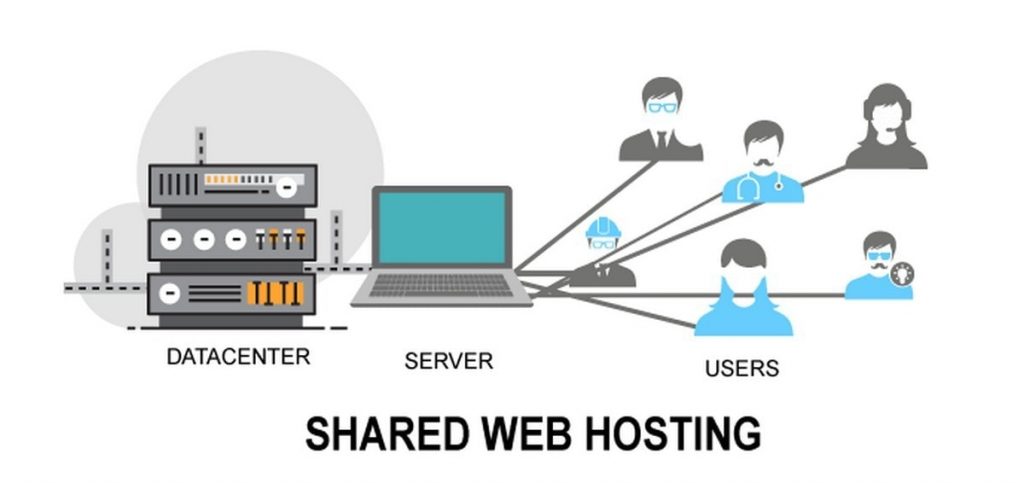Although creating a website isn’t difficult, some hosting platforms and concepts can be perplexing.
These simple web hosting hints can assist you in getting started.
Web hosting may be the most underestimated aspect of the internet. Podcasts, memes, articles, tweets, websites, online gaming, and Netflix material all reside on a server that an individual or organization pays to keep up and running so that you can access them.
In a nutshell, web hosting is an unseen yet vital component of the online experience.
If you’re thinking of building a website, there are a few essential web hosting concepts you should understand before getting started.
Although it’s pretty simple to join up for a service and utilize the tools provided by the provider to quickly develop a beautiful website,
There are a lot of phrases and concepts to get you ahead when it comes to the functional front end.
Some of it is unclear, if not blatantly contradictory, as you’ll see.
Before you sign up for a web hosting service, here’s what you should know about it.
1. Big Difference Between Hosting Types
You’ve probably encountered terminology like shared, VPS, dedicated, cloud, WordPress, and reseller if you’ve spent any time on a web host’s website. They represent the various forms of web hosting, however not every web host provides all of them. Furthermore, the hosting kinds varies significantly from one another.

Almost every web host offers shared hosting, which is the most affordable type of web hosting.
Your website shares a server and server resources with many other websites when you use shared hosting.
Shared hosting is the way to go if you want to keep your web hosting budget low and don’t expect a lot of traffic.
This form of site hosting should cost you less than $10 per month. However, this level of hosting is best suited for small sites that don’t require a lot of bandwidth. Because you’re sharing resources with other sites, you should expect a temporary slowdown if one of them begins to attract a large number of visitors.
If you’re on a low budget, free web hosting is an option, but it comes with certain limitations.
Larger companies with high traffic volumes should consider VPS or dedicated hosting, which both provide increasingly powerful server specs.
VPS hosting is similar to a more powerful version of shared hosting, with the exception that there are considerably fewer websites sharing a server’s resources, which are also better separated.
Although VPS hosting is more expensive than shared hosting, you should expect to pay less than $100 each month.

Dedicated hosting puts your website on its own server, allowing it to take advantage of all of the server’s resources. This is the most expensive sort of hosting; you may pay $100 or more per month for this raw power.
Reseller hosting allows you to launch your own branded web hosting company without having to worry about setting up the infrastructure from the ground up.
WordPress hosting allows you to create a website in a setting that is optimized for the world’s most popular content management system.
And what about cloud hosting?
That’s a completely separate beast that allows you to effortlessly scale the power of your website across numerous servers, albeit not every web host supports it.
Yet.
Pricing for these hosting packages varies widely, so comparison shopping is essential.
2. Bandwidth and Data Transfer are not the same
Although the terms “bandwidth” and “data transfer” are sometimes used interchangeably to describe the quantity of data your website serves to visitors, they do not have the same technical definitions.
Data transfer is the real amount of information that may be used over a specific period of time—typically a month—while bandwidth is the total amount of data that can be moved at one time.
Consider this: a web host may have a maximum bandwidth of 5GB, but your site may only allow 1GB of data transfers per month, depending on your hosting plan.
Note: If your website’s monthly data transfers are exceeded, such as a result of a Reddit hit, your web provider may decrease your site’s data transfer speeds or charge you a fee as a penalty.
It might even persuade you to upgrade to a better level of web hosting. It’s important to be aware of your site’s data constraints.
Read also:
- 21 Ways to Market Your Business Online
- 12 Reasons to Hire a Good Copywriter
- What Is the 403 Forbidden Error & How to Fix It
3. Unlimited Isn’t Quite Unlimited
The promise of limitless storage or monthly data transfers will attract you to sign up for a web hosting service. The majority of the time, it isn’t entirely truthful.
Now, I’m not saying that these web servers are outright lying, but the claims of “unlimited” storage or data transfers almost always come with caveats that differ from business to company.
For example, FatCow advertises “oodles” of disk space and claims that there is no limit on how much content a user can store—as long as the user abides by the company’s terms of service and only uses storage “for the usual operation of your FatCow website.”
It’s the same as a shrimp buffet with no limit: If they don’t run out of shrimp first, a restaurant will eventually cut you off.
Indefinite storage and data transfers are tied closely with shared or WordPress plans, and they permit you to go the extra mile though with boundaries.
To learn exactly what you can and cannot do within the scope of your plan’s unlimited offering, visit a web host’s terms of service or a customer care representative.
4. The Hard Disk Drive/Solid-State Drive Tradeoff
If you sign up for shared web hosting, you’ll most likely be assigned to a server that uses standard hard disk drives (HDDs).
An HDD-based server has the benefit of being able to provide enormous volumes of storage for a low cost.
Web hosts will give you the choice to establish a site on a solid-state drive as you go up the hosting ladder to more powerful services, such as VPS and dedicated (SSD).
Servers using solid-state drives (SSDs) are extremely fast storage devices. Because SSD technology is still relatively expensive, SSD-based servers often have substantially lower storage capacities than HDD-based servers.
You’ll rarely encounter 1TB SSD servers, despite the fact that this is a popular quantity in the HDD world.
5. You find Linux Server Most of the Time
Linux is the operating system that almost all web hosts use to run their servers. I’m not sure I’ve ever reviewed a web host that didn’t use a free, open-source operating system.
You don’t need to know anything about Linux to develop a website, and you don’t need to do any specific backend work.
Building websites is a snap using website builders.
If your site requires the ASP or ASP.NET scripting frameworks, you must use the Windows Server operating system.
Because the script you write and the webpages you create will only work in a Windows environment, this is the case.
Besides, there is another reason why Microsoft applications like Office and Outlook are simple to integrate with the server.
Cons of this
Unless you do some fiddling, Windows servers won’t work with Linux-based open-source software.
Furthermore, Windows servers are $10 to $20 more expensive than Linux servers, but this is a modest price to pay if you need Microsoft’s capabilities.
Trust this post has been helpful? This post is helpful for bloggers and web designers, especially for the newbies to blogging. You will know some of the things to look out for in making your selection. Here is all you need to know before starting a blog. We got a post on Linus vs Microsoft servers. Stay tuned and remember to share.